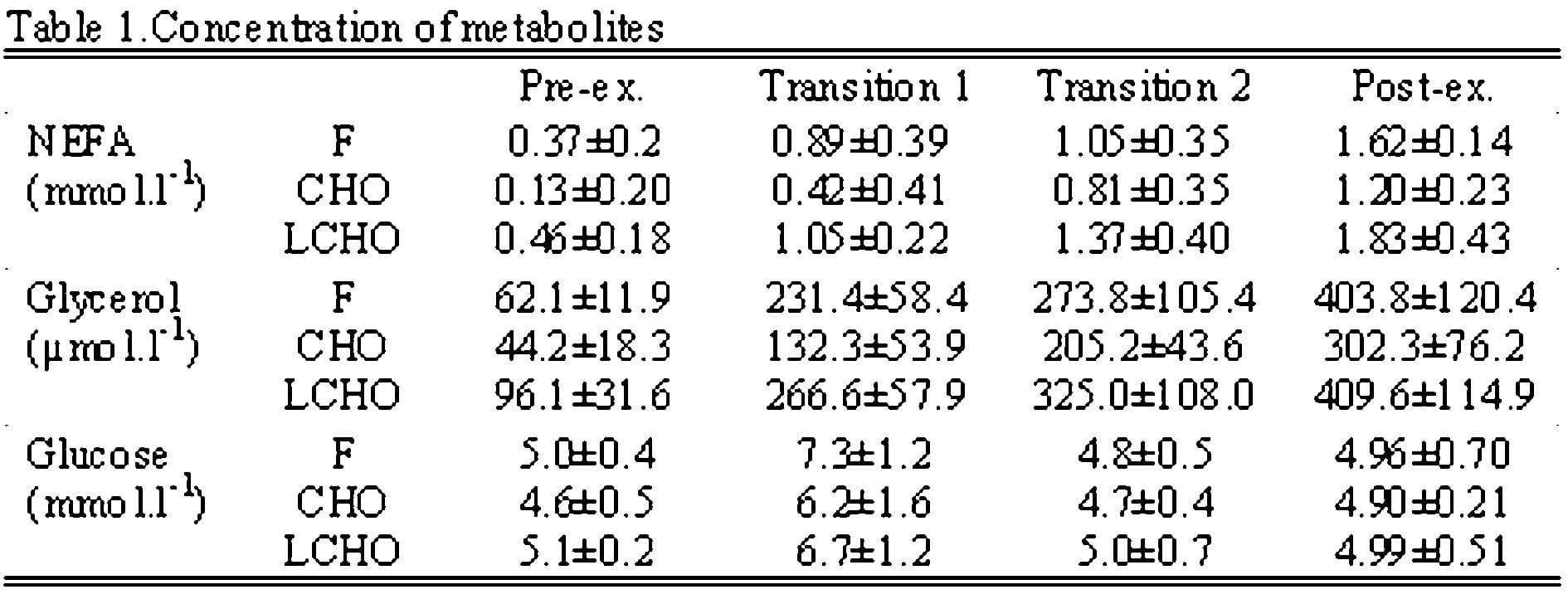Carbohydrate intake prior to exercise has been shown to be beneficial, although recently the intake of lipids has also proved advantageous. The effect of high carbohydrate (CHO) and high fat (LCHO) isoenergetic pre-exercise meals on the metabolic responses to duathlon performance were investigated.
Nine male subjects of mean age 28.6±5.9 yrs, body mass 76.8 ± 8.5 kg and height 1.80 ± 0.7m performed simulated self-paced duathlon time trials (5km run, 30km cycle, 5km run) following three pre-exercise dietary conditions. Subjects fasted overnight and were randomly given isoenergetic meals of either a high CHO (214.8g) or low CHO (50.0 g) or fasted (F) at breakfast 3-4 h prior to exercise. Respiratory gas analysis took place at the start and end of each run stage and at the start, mid point and end of the cycle stage to determine CHO and fat oxidation rates. Blood samples were taken prior to and after each exercise stage to determine metabolite responses. All data were analysed using a general linear model ANOVA with repeated measures and means were compared using the Bonferroni confidence interval.
Duathlon performance (6.56 ± 0.39 m s-1, 6.36 ± 0.45 m s-1, 6.54 ± 0.44 m s-1 for the F, CHO and LCHO respectively) was not significantly different as a result of the pre-exercise meal strategies (P > 0.05). CHO oxidation rate was significantly higher and fat oxidation rate was significantly lower in CHO compared to LCHO and F (P < 0.05). Non-esterified fatty acid (NEFA) and glycerol were significantly lower in CHO (P < 0.05), though no differences were observed for glucose (P > 0.05). Table 1 shows the metabolic differences between the conditions.
These data emphasise the availability and oxidation of energy substrates is altered during duathlon by the manipulation of pre-exercise macronutrient intake, although no effects on overall performance are observed.

